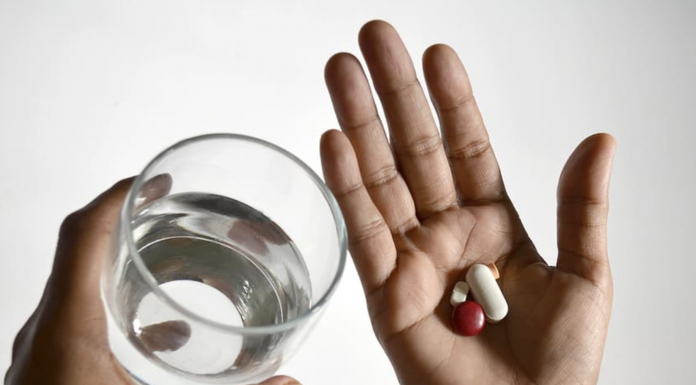
“Researchers found a relationship between vitamin D deficiency and risk of developing COVID-19.”
Oct 13, 2020 |
By British Medical Journal via MedicalXpress |
The professional perception of vitamin D as a medicine, rather than as a key nutrient, is constraining practice and jeopardising the health of elderly care home residents in England, conclude researchers in the journal BMJ Nutrition Prevention & Health.
At a time when the vulnerability of elderly care home residents is under the spotlight because of the impact of COVID-19, an urgent review is needed of the nutritional guidelines and regulations around the use of the vitamin, they argue.
The main source of vitamin D is exposure to sunlight, levels of which plummet during the winter in many countries in the northern hemisphere. With few major food sources, it’s difficult to get enough vitamin D from diet alone, and vitamin D deficiency in care homes is widespread in many parts of the world, say the researchers.
Vitamin D is essential for good bone health and is thought to have a role in immunity, cardiovascular health, neurological conditions, respiratory infections, lung function and cancer. Most recently, it has been linked to susceptibility to, and severity of, COVID-19.
People who spend less time outdoors, such as the elderly in residential care, or who regularly cover up their skin, or who have darker skin tones, are all at heightened risk of vitamin D deficiency.
Vitamin D supplements have been recommended for care home residents for nearly 30 years. In 2016, recommendations for daily vitamin D supplements were extended to the entire population in the winter months, and throughout the year for those living in care homes.
National bodies from around the world have issued similar recommendations for care home residents, including Australia, Canada, France, Norway, New Zealand and the USA.
In a bid to better understand thinking and practice around the use of vitamin D, the researchers conducted semi-structured interviews with 13 people involved in elderly residential care … Read more.
Does vitamin D protect against COVID-19?
Aug 24, 2020
Harvard Medical School – There is some evidence to suggest that vitamin D might help protect against becoming infected with, and developing serious symptoms of, COVID-19.
We know, for example, that people with low vitamin D levels may be more susceptible to upper respiratory tract infections.
One meta-analysis found that people who took vitamin D supplements, particularly those who had low vitamin D levels, were less likely to develop acute respiratory tract infections than those who didn’t.
Vitamin D may protect against COVID-19 in two ways. First, it may help boost our bodies’ natural defense against viruses and bacteria. Second, it may help prevent an exaggerated inflammatory response, which has been shown to contribute to severe illness in some people with COVID-19.
Our bodies make vitamin D when exposed to sunshine. Five to 10 minutes of sun exposure on some or most days of the week to the arms, legs, or back without sunscreen will enable you to make enough of the vitamin.
Good food sources of vitamin D include fatty fish (such as tuna, mackerel, and salmon), foods fortified with vitamin D (such as dairy products, soy milk, and cereals), cheese, and egg yolks.
The recommended dietary dose of vitamin D is 600 IU each day for adults 70 and younger and 800 IU each day for adults over 70. A daily supplement containing 1,000 to 2,000 IU of vitamin D is likely safe for most people. For adults, the risk of harmful effects increases above 4,000 IU per day. Source.
Vitamin D Can Help Reduce COVID-19 Risks: Here’s How
Sep 13, 2020
HealthLine – Vitamin D is a well-known immune booster.
Now, a series of recently published studies say the supplement can also protect you from contracting SARS-CoV-2, the virus that can cause COVID-19. And vitamin D may reduce the severity of illness if you do test positive for COVID-19.
In one study, University of Chicago Medicine researchers led by Dr, David Meltzer, the university’s chief of hospital medicine, found a relationship between vitamin D deficiency and risk of developing COVID-19.
The researchers studied 489 patients at the hospital and observed that those with a vitamin D deficiency (defined as less than 20 nanograms per milliliter of blood) were almost twice as likely (1.77 times higher) to test positive for the novel coronavirus than those with normal levels of vitamin D.
“These findings appear to support a role of vitamin D status in COVID-19 risk,” the researchers wrote in their retrospective cohort study.
They also called for further clinical studies on the possible link between the vitamin and the disease.
Meltzer told Healthline that he ranked getting adequate vitamin D in the diet “below masks and hygiene” in terms of COVID-19 prevention, but, “I think it should be near the top of everyone’s list.”
“There’s a lot of evidence that we should be taking [vitamin D deficiency] very seriously,” Meltzer said. “If you’re taking a reasonable dose of vitamin D, it’s hard to see how it hurts and it could help a lot.”
“If you’re deficient in vitamin D that does have an impact on your susceptibility to infection,” agreed Dr. Anthony Fauci, director of the National Institute of Allergy and Infectious Diseases, in a recent Instagram Live interview with actress Jennifer Garner. “I would not mind recommending and I do it myself, taking vitamin D supplements.”
More than 40 percent of the U.S. population is deficient in vitamin D … Read more.
ALSO ON HEADLINE HEALTH TODAY: Fauci Speaking Out Against Trump | Cog In ‘Big Red Machine’ Dies | How Long Does It Take To Get Over Covid?



